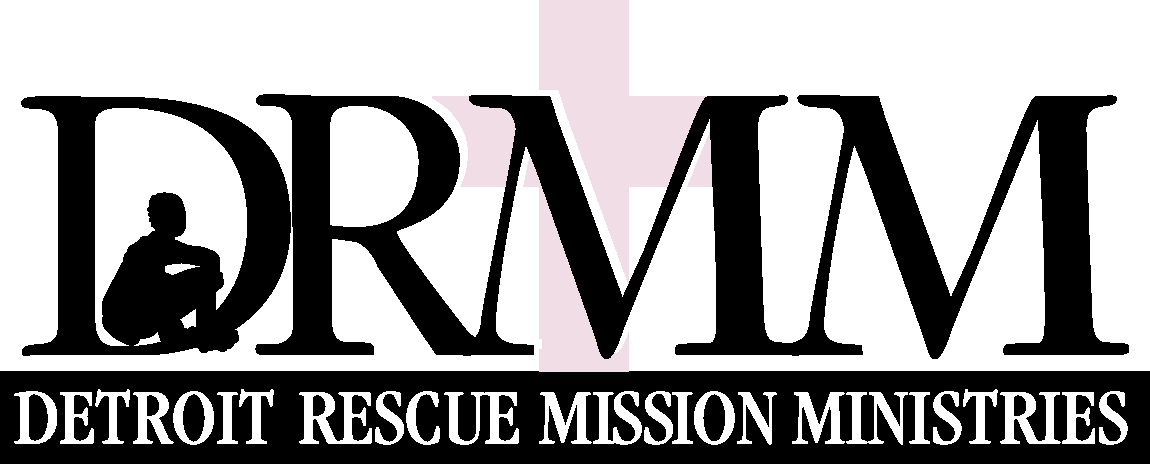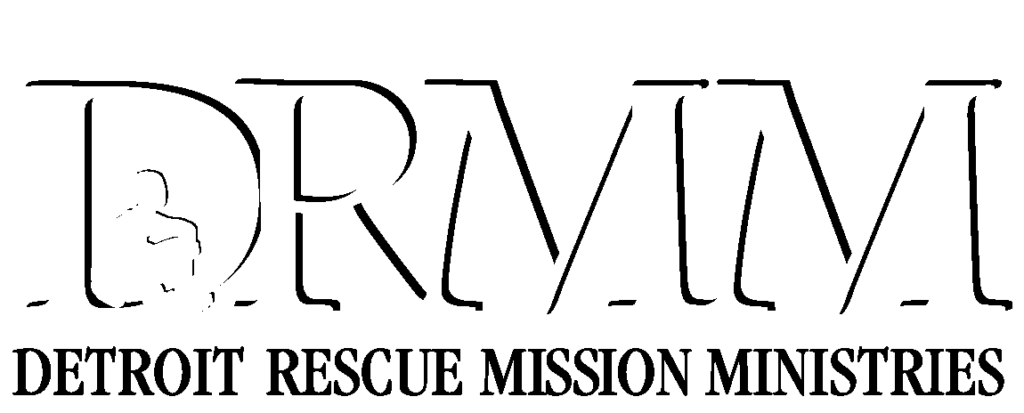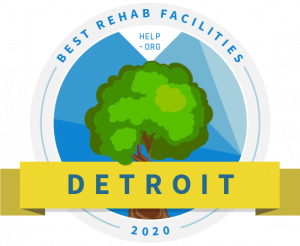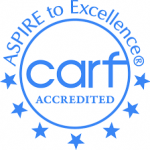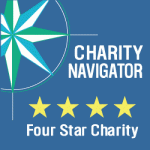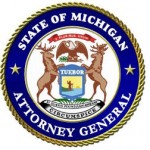HISTORY
117 Years of Helping Detroit
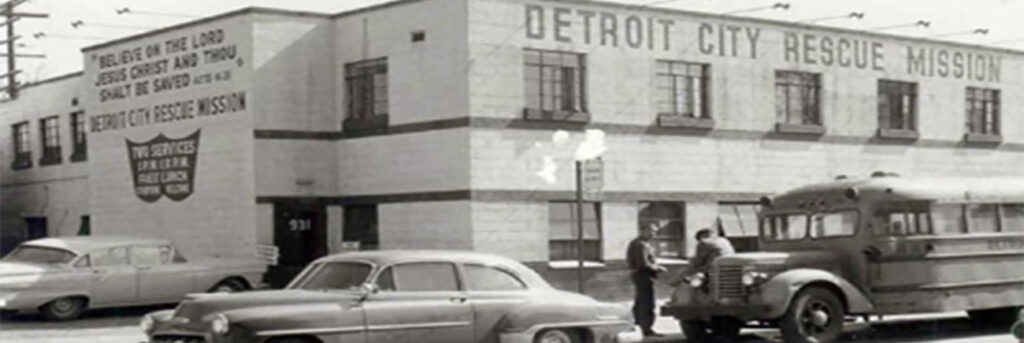
Detroit Rescue Mission Ministries (DRMM): Transforming Lives through Faith and Compassion
“For I was hungry, and you gave me food, I was thirsty, and you gave me drink, I was a stranger and you welcomed me.” – Matthew 25:35
I am deeply honored and thrilled to present to you an exhaustive and meticulously detailed overview of the expansive array of critical programs offered by the Detroit Rescue Mission Ministries (DRMM). Our unwavering dedication to serving the community is not only deeply ingrained in our historical roots but is also underpinned by an unyielding sense of purpose.
Chapter 1: The Birth of DRMM (1909-1960s)
In the early 20th century, DRMM was founded with an unwavering commitment to effecting positive change in the lives of those facing adversity. Since our inception, we have stood as a beacon of hope for individuals experiencing homelessness. Our shelters not only provide a safe haven but also offer a foundation of stability in an otherwise uncertain world.
Shelter Services: DRMM offers safe, impeccably maintained shelters, ensuring that none among us have to endure the harsh realities of sleeping on the streets. Each day, we provide shelter to a minimum of 2200 individuals, affording them an opportunity to regain stability in their lives.
Soup Kitchen: We acknowledge the stark reality of hunger for many within our community. Our soup kitchen addresses this fundamental need by serving hot, nourishing meals to over 4500 individuals daily, thereby ensuring that no one goes to bed on an empty stomach.
Spiritual Guidance: In times of crisis, spiritual support can serve as a source of hope. Our spiritual services provide comfort, strength, and a profound sense of belonging to those facing adversity.
Chapter 2: Meeting Evolving Needs (1960s-1990
DRMM recognized the evolving landscape of societal issues and adapted accordingly.
Treatment Programs: To address the intricacies of rehabilitation, we introduced specialized programs for individuals transitioning from incarceration. These programs encompass physical, emotional, and psychological recovery.
Rehabilitation: Our comprehensive approach to rehabilitation encompasses physical, emotional, and psychological recovery, striving to restore lives and provide individuals with an opportunity for a brighter future.
Spiritual Counseling: Spiritual counseling remains a cornerstone of our work, guiding individuals on a path towards healing and self-discovery, addressing their spiritual needs.
Chapter 3: Expanding Services (Late 1990s-Early 2000s)
In response to evolving needs, DRMM expanded its services.
Transitional Housing: Transitional housing emerged as a crucial resource, bridging the gap between temporary shelter and permanent housing, providing individuals with a firm foundation for their journey towards self-sufficiency.
Inpatient Treatment Programs: Our inpatient treatment programs offer an immersive and supportive environment for those grappling with addiction or mental health issues, granting them the specialized care they require.
Community Outreach: DRMM’s community outreach efforts extend services to a diverse range of populations, ensuring that no one is left behind, irrespective of their background or circumstances.
Chapter 4: Comprehensive Support (Early 2000s-Present)
As we entered the 21st century, DRMM’s commitment to comprehensive support deepened.
In the early 2000s, as we entered the new millennium, Detroit Rescue Mission Ministries (DRMM) fortified its commitment to providing comprehensive support to individuals in need within our community. This chapter details our pioneering efforts in supporting homeless veterans and returning citizens from county, state, and federal prisons, successfully reintegrating them into society and significantly reducing recidivism rates.
Homeless Veterans Programs: DRMM recognizes the unique challenges faced by veterans who find themselves without stable housing. Our dedicated Homeless Veterans Programs are designed to offer specialized assistance to these brave men and women who have served our country.
Temporary Shelter: We provide safe and secure temporary shelters and permanent supportive housing for homeless veterans, ensuring they have a stable and dignified place to stay while they work towards rebuilding their lives. Annually, we serve more than 100 homeless veterans in these facilities, offering them not just shelter but also case management and a path to recovery.
Counseling and Support: Our team of trained professionals, including social workers and counselors, work closely with homeless veterans to address their physical, emotional, and psychological needs. We offer counseling services tailored to the unique challenges veterans may face, such as post-traumatic stress disorder (PTSD) or trauma related to their service.
Job Training and Placement: DRMM is committed to helping veterans regain their self-sufficiency. Through our job training programs, veterans gain valuable skills that enhance their employability, increasing their chances of finding stable employment and achieving financial independence.
Community Integration: We facilitate the integration of homeless veterans into the broader community by connecting them with local resources, support networks, and programs. Our aim is to ensure they have the tools and opportunities to lead fulfilling lives.
Returning Citizen Program: Our comprehensive Returning Citizen Program has been instrumental in reducing recidivism rates and aiding individuals transitioning from county, state, and federal prison back into society.
Reentry Services: DRMM provides a structured support system for returning citizens, helping them navigate the complex challenges they face upon release. This includes assistance with finding housing, securing employment, and accessing essential resources like identification documents and transportation.
Mental Health and Addiction Support: Many returning citizens grapple with mental health issues or substance abuse problems. We offer specialized programs to address these issues, providing a holistic approach to rehabilitation.
Legal Assistance: DRMM accompanies returning citizens to court and assists them in reestablishing their legal status and rights, reducing barriers to their successful reintegration into society.
Family Reunification: We understand the importance of family ties in the rehabilitation process. Our programs facilitate the reunification of returning citizens with their families, providing them with a strong support system.
Community Partnerships and Volunteer Engagement: DRMM’s impact is magnified by the dedication of our more than 12,000 volunteers each year. These volunteers are the lifeblood of our organization, offering their time and expertise to support our programs. In addition to our volunteers, we have established strong partnerships with various community organizations and churches, expanding our reach and effectiveness in addressing the diverse needs of our community.
The impact of these programs is profound. We have witnessed significant reductions in recidivism rates among returning citizens, and many homeless veterans have successfully transitioned into stable housing and employment. DRMM remains committed to its mission of providing comprehensive support to those in need, continuously adapting and expanding our services to meet the evolving challenges faced by our community.
Pioneering Inpatient Substance Abuse Treatment for Women and Their Children
DRMM has a storied history of innovation and compassion, being the first to establish inpatient substance abuse treatment programs tailored specifically to women and their children. This pioneering effort ensures that mothers can seek recovery while keeping their families together.
Child Education and Transportation: Recognizing the importance of continuity in children’s education while mothers undergo rehabilitation, DRMM provides children with educational support and transportation to school, ensuring they do not miss out on their studies.
Tutoring Services: In addition to regular schooling, we offer tutoring services to children, providing additional support to help them excel academically while their mothers are in rehabilitation.
Legal Support: DRMM goes the extra mile by accompanying mothers to court, assisting them in the process of regaining custody of their children. This holistic approach to recovery prioritizes family reunification.
Permanent Supportive Housing: Stable housing is pivotal for success. Our permanent supportive housing programs offer a secure foundation from which individuals can rebuild their lives and attain independence.
GED Classes: Education is the key to breaking the cycle of poverty. Our GED classes open doors to improved opportunities and brighter futures, ensuring that individuals have access to education.
Soft Skills Training: Fostering interpersonal and life skills ensures that individuals not only secure jobs but also thrive in their personal lives, promoting holistic well-being.
Housing Rehabilitation: Providing safe, dignified living conditions restores individuals’ dignity and fosters a sense of pride in their homes.
Empowering Youth Through Sports and Senior Services: We recognize the transformative power of sports for youth and the importance of providing seniors with spaces for socialization and nourishment.
Youth Sports Activities: Our comprehensive youth sports programs offer a wide range of athletic activities aimed at engaging and empowering young individuals. These programs not only promote physical fitness but also instill essential life skills, teamwork, discipline, and a profound sense of belonging, paving the way for a brighter future for our youth.
Senior Services: We understand that seniors require specialized care and attention. DRMM’s senior services create a welcoming and vibrant environment where seniors can meet, socialize, and enjoy nutritious meals together. These services reduce isolation and enhance the overall well-being of many seniors, fostering a sense of community, purpose, and joy in their lives.
Entrepreneurial Initiatives: DRMM’s entrepreneurial ventures provide employment opportunities while generating revenue to sustain our programs, making us self-sustainable and innovative.
Restaurant and Banquet Halls: By providing hospitality services, we offer individuals a chance to gain experience in a professional setting, improving their employability.
Landscaping Programs: Hands-on training in landscaping contributes to skill development and community beautification, fostering community engagement.
Chapter 5: Responding to Crisis (COVID-19)
In the face of the global pandemic, DRMM significantly intensified its efforts.
Meals: Providing over 2200 meals each day became a lifeline for many facing food insecurity due to economic hardships. We expanded our meal services to ensure that no one went hungry during these challenging times.
Shelter: Safe accommodations were more critical than ever during the pandemic, ensuring individuals had a place to protect themselves from the virus and maintain their safety.
Healthcare: Offering medical and mental health services ensured that individuals could access essential healthcare despite the challenging circumstances, prioritizing their well-being.
Community Support Beyond Expectations
DRMM is committed to extending a helping hand to the broader community, addressing immediate needs, and fostering long-term stability.
Clothing, Furniture, and Food Assistance: Our commitment to community support is exemplified through the provision of essential resources such as clothing, furniture, and food boxes. These tangible provisions are indispensable for individuals and families facing economic challenges, ensuring they have the basic necessities they require.
Essential Needs Support: DRMM’s dedication to the community transcends material assistance. We stand ready to provide critical support in various forms, including financial assistance, utility bill relief, and access to essential resources. In times of crisis or hardship, our organization is a steadfast source of support, offering both immediate relief and a pathway to long-term stability
Chapter 6: Employment Impact and Regional Reach
DRMM’s impact extends far beyond those we serve directly. With a workforce of over 600 employees, we contribute significantly to the local economy, supporting the livelihoods of many within our community. Our regional services extend to four counties in Michigan, underscoring our unwavering commitment to providing critical support across the region.
Chapter 7: Future Vision – A Closer Walk with Faith and Service
As we look to the future, DRMM’s programs are meticulously designed to address specific needs.
Inpatient Treatment Programs: Expanding these programs will provide more individuals with intensive support for addiction recovery, placing greater emphasis on spirituality in the journey to healing.
Mental Health Programs: In response to the growing need, comprehensive mental health programs will address both the physical and emotional well-being of our clients, effectively addressing their mental health needs.
Job Training and Placement Programs: Expanding these initiatives will empower individuals with skills and resources, promoting self-sufficiency and economic stability.
Expanding Spiritual Services: Nurturing the spiritual growth of both the community and our dedicated staff will enhance our identity and reinforce our faith-based approach, providing individuals with valuable spiritual support.
In conclusion, the Detroit Rescue Mission Ministries’ diverse programs are tailored to address the multifaceted needs of individuals facing challenges in their lives. As we continue to adapt and expand our services, our unwavering commitment to providing comprehensive, compassionate, and faith-based support remains at the core of everything we do.
We extend our deepest gratitude for your continued support of the Detroit Rescue Mission Ministries. Together, we can build a brighter future for those in need.
“And the King will answer them, ‘Truly, I say to you, as you did it to one of the least of these my brothers, you did it to me.'” – Matthew 25:40
